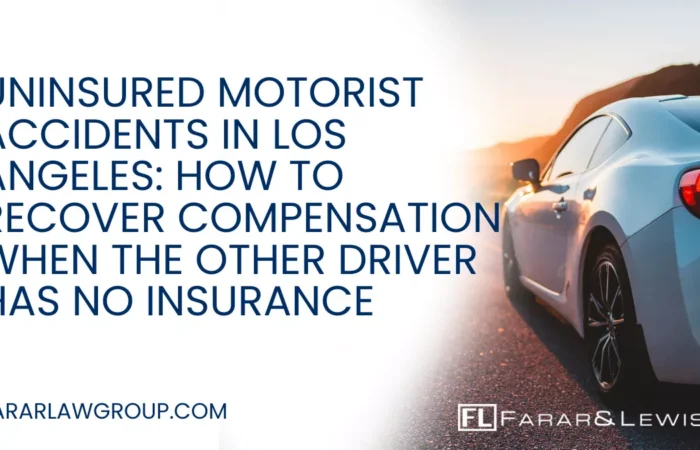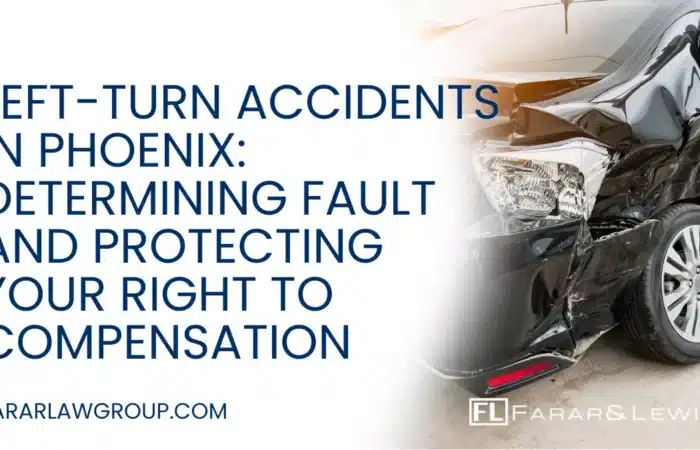Getting into a car accident is never a great experience. While it is unfortunate whenever it happens, everybody is at risk whenever they get onto the road. During and immediately after the accident, it can be easy to become disoriented, angry, or stressed.
In the event of an accident, you need to remain calm at all times. Remaining as calm as possible will help you keep your memory of the incident as much as possible. Law enforcement, your insurance agent, and your personal injury attorney will need all the facts that you can recall.
Make Safety a Priority
In any car accident, big or small, your absolute first priority should be for the safety of everybody involved.
If your accident is a small one with little damage, drive the cars to a safe spot on the side of the road or a nearby parking lot and turn on your cars hazards. Make sure both you and the vehicles are visible to other drivers to prevent any further accidents.
Should the accident, unfortunately, be something more severe, you need to check the health of everyone in your car and then the other car if possible. After you have checked on everybody, immediately call 911 for the police and any ambulances if needed. Some drivers might request you to skip calling the police if the accident is a minor one. Always call the police. Having law enforcement on the scene will help you for any insurance or legal reasons and as protection against an upset driver.
Gather Information
After checking for Injuries and calling emergency services, start to get as much information as possible about the accident.
First, try to exchange information with the other driver. Some driver may not comply, especially those with no insurance. If they do, try to swap information. You will want to receive the following from the other person involved in the accident:
• Full name
• Driver’s license number
• Home address
• Contact number
• Email address
• Insurance policy number
In addition to any personal information about the other driver, you are going to want to jot down any other information you can get about the accident. The more information you can gather, the more help you will have for any legal suits, especially if you are not the driver at fault. If you can and the scene is safe, try to gather the following information as well about the crash:
• Exact time of the crash
• Location of the accident
• Color, make, model, and year of the other car
• License plate numbers
• Description of the other driver
• Description of the passengers of the other car
Take Pictures
The more pictures of the damage, the better off you will be in the end. Use your phone’s camera to get pictures of the cars from all angles. Take pictures of the scene as well. You are going to want to document any property damage so your insurance and potentially the courts can decide who is at fault. Be on the lookout for skid marks as those can help insurance agents determine fault as well.
Talk to Witnesses
If your accident had any witnesses, try to gather as much of their information as well as their contact information. Their perspective on the accident can help eventually determine who the driver at fault is.
File a Police Report
No matter how big or small the accident is, if there is any damage or injuries at all, you are going to need to file a police report. A police report will protect you against other drivers potentially staging the accident for insurance fraud. If you cannot file one at the scene, try to get to a police station to file a report as soon as possible. Police reports will also aid your insurance agent or personal injury lawyer in their investigations.
Call Your Insurance
Report your accident and file a claim to your insurance as quickly as you can. Most major insurance companies even have 24-hour phone lines to file a claim any time of the day.
Give your insurance company any of the information you wrote down and any pictures you took at the scene. Even if the other driver has insurance, call your agent and let them do the work on your behalf.
Contact an Attorney
If you had any injuries in the accident, it may be best to contact a lawyer as well. A lawyer will sit down with you, look at the facts of the case and determine the best course of action. If you have unpaid medical or property damage bills, a lawsuit may be the best course of action.


